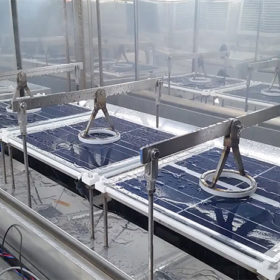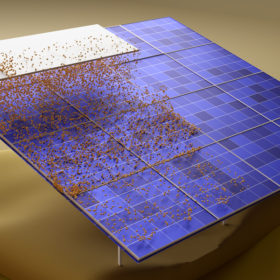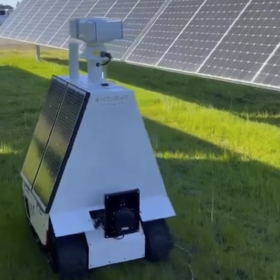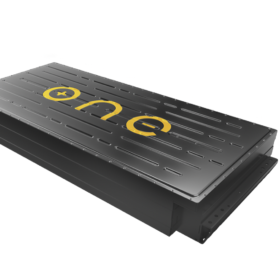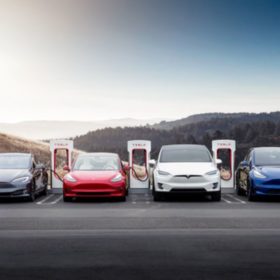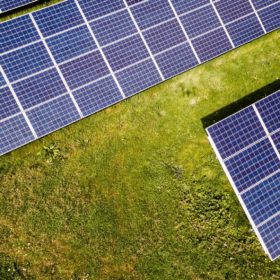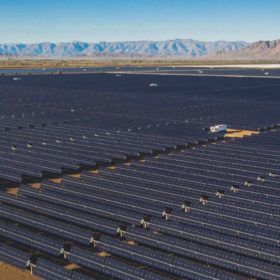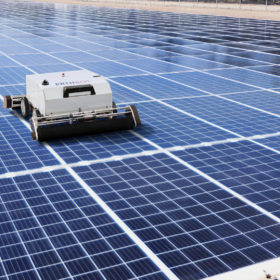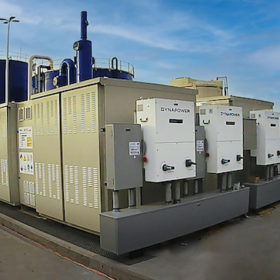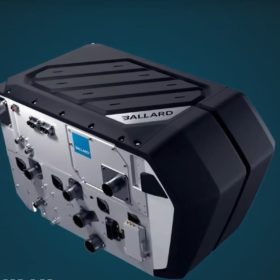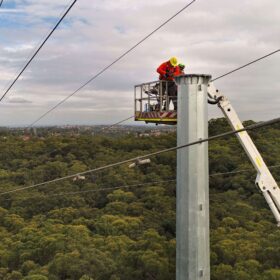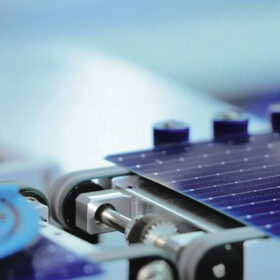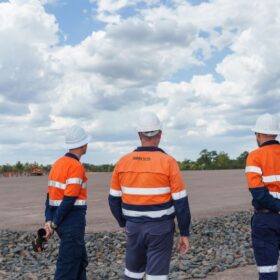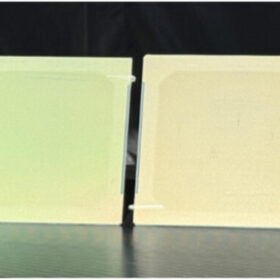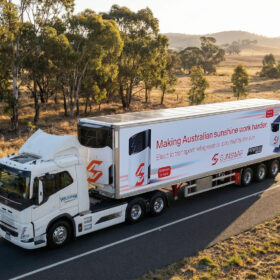Solar PV with a 50-year lifetime
The US Department of Energy’s durable materials consortium is a multi-laboratory unit that stress-tests solar modules for durability. It seeks to extend the useful life of PV.
MIT scientists develop waterless PV cleaning system
Scientists from the Massachusetts Institute of Technology have developed a system that can be operated at a voltage of around 12V, with a 95% recovery rate for lost power after cleaning. The waterless system can be operated automatically via an electric motor.
Fully autonomous robot for solar O&M
OnSight Technology has developed a tele-operated vehicle to clean solar arrays. It is equipped with a radiometric thermal imaging camera and an optical zoom camera backed by artificial intelligence. It has a range of 12 hours and a speed of 1.6 km per hour.
EV battery manufacturer demonstrates 1200km range, raises $88 million
The US battery manufacturer Our Next Energy (ONE) has said it will use the funding led by BMW to accelerate its R&D and build a US manufacturing facility.
Australia’s Core Lithium signs four-year supply deal with Tesla
With the global demand for lithium accelerating, Australian miner Core Lithium has inked a deal to supply United States-based electric vehicle and battery maker Tesla with up to 110,000 tonnes of lithium spodumene concentrate.
‘The major solar players will shift from PERC to TOPCon’
US analyst Clean Energy Associates made some notable predictions in its Q4 survey of the world solar manufacturing market, including echoing predictions made elsewhere that the new polysilicon production capacity coming online now will help arrest the spike in solar panel prices.
US-based renewable power producer sets up shop in Australian energy sector
United States independent power producer BrightNight has announced its formal entry into the Australian energy market, saying the company’s solutions could play a critical role in the nation’s continued journey towards a renewable energy future.
Rackless, earth-mounted solar provider earns funding
Erthos secured a US$17.5 million (AU$24 million) Series B from an investor who participated in the startup of Tesla and SpaceX. The utility-scale solar company has a 2.5GW project pipeline.
Redflow’s redox flow batteries to be assessed by Underwriters Laboratories
Underwriters Laboratories, a US non-profit standards development organisation, will carry out research into the operating and safety profile of Queensland company Redflow’s redox flow batteries under nominal and off-nominal conditions.
Adani signs MoU for hydrogen fuel cell manufacturing in India
Adani Group and the Canada-based PEM fuel cell producer will examine various options to cooperate, including potential collaboration for hydrogen fuel cell manufacturing in India.
